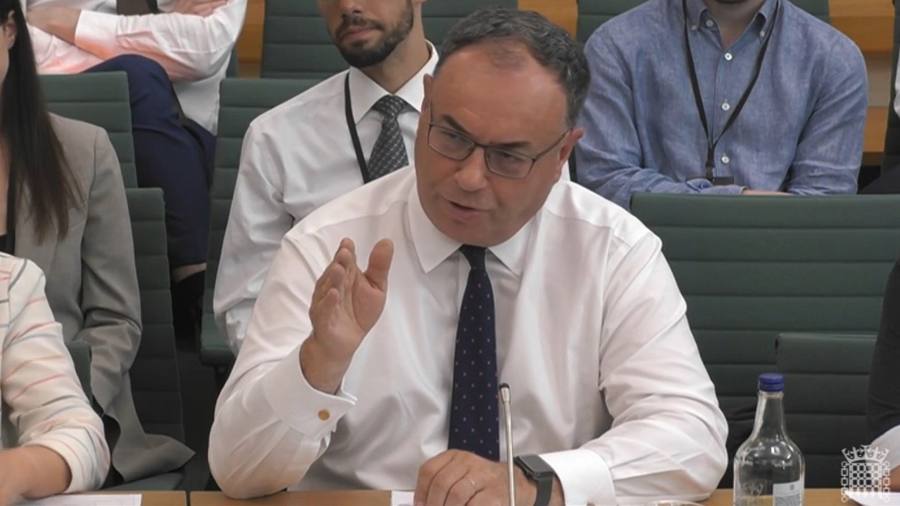
Receive free UK interest rates updates
We’ll send you a myFT Daily Digest email rounding up the latest UK interest rates news every morning.
The pound fell to a three-month low on Wednesday after Bank of England governor Andrew Bailey cast doubt on the need for further interest rate rises.
Sterling was down 0.6 per cent on the day against the dollar to $1.249 after Bailey told MPs that the UK economy was now “much nearer the top of the cycle on the basis of current evidence”.
The BoE governor said the economy had “moved [on] from a period . . . where it was clear [interest] rates needed to rise going forward and the question was how much”. He added: “We’re not in that place any more.”
But Bailey stressed he was not providing guidance ahead of the next Monetary Policy Committee meeting on September 21. The BoE raised interest rates to 5.25 per cent in August.
Financial markets expect the bank to raise interest rates twice more and peak at 5.75 per cent before falling gradually in 2024.
Bailey and other MPC officials have said the committee needs to choose between raising rates further or keeping them at the current restrictive level for longer. “The judgments now are much finer [than before],” Bailey said.
He added that the decision would largely hinge on the extent to which the labour market was cooling.
Wage-bargaining has so far surprised the committee by its strength, Bailey acknowledged. But he added that this might soon change.
“Headline inflation has come down. We will see if inflation expectations continue to come down and [whether] that will be reflected in wage-bargaining,” he said.
Sir Jon Cunliffe, deputy governor for financial stability, added that in deciding his stance at the September meeting he would look carefully at whether price rises still appear to be persistent — and that would depend on the labour market.
“We are clearly getting to a point with headline inflation coming down and we are starting to see some movement in the labour market — a cooling,” Cunliffe said.